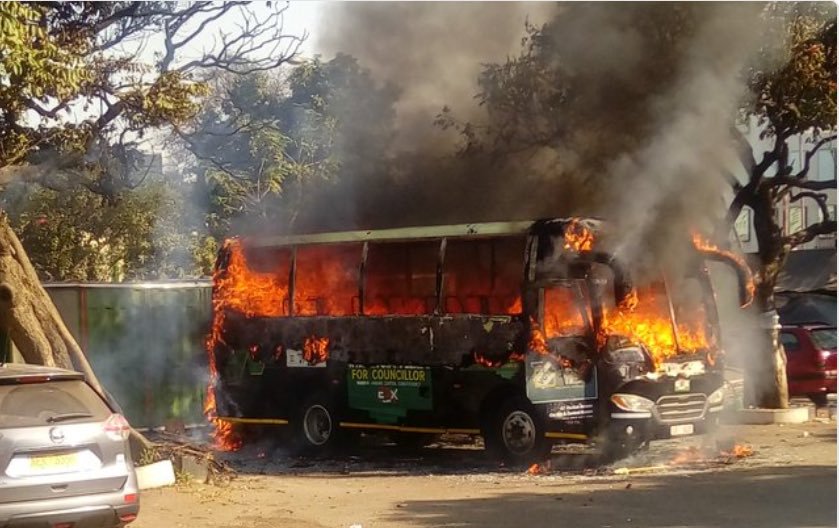Peacemaker Zano
While it is well known that peaceful demonstrations are a constitutional right in Zimbabwe, some opposition elements are abusing that right by pandering to violent protests.
MDC leader, Nelson Chamisa recently boasted that upon completion of that party’s disputed national congress which was held in Gweru, he would mobilise his party supporters to participate in a violent demonstrations aimed at unlawfully removing President Emmerson Mnangagwa from power.
Chamisa was imprudently quoted instigating the removal of President Mngangagwa from power saying, “une nhamo iwe ngwena ucharezvwa mudziva, ndava unokurumidza kutorwa nekukurumidza nguva isati yasvika, what do I mean? Takaona kuti election, ndakataura ndikati 2023 kure, why ndiri kuti kure, we must make sure that we have a democratic election in this country as soon as possible, kana varamba tovahwehweredza for that democratic election kuti iitike muno.”
Honestly, Chamisa cannot topple a Government that was constitutionally elected through mass protests. In August 2018, Chamisa and allies who include his deputy, Tendai Biti, incited citizens to protest against the Government and the Zimbabwe Electoral Commission (ZEC), claiming that they were defending their vote.
Also, in January 2019, the same opposition outfit, together with the Zimbabwe Congress of Trade Union (ZCTU), organised a national shutdown, where they burned and destroyed Government property, including tollgates and police camps. Such acts of violence have proved that violence is in MDC’s DNA. In that regard, Chamisa should be reminded that election time is over and that the nation is focusing on nation building.
The people of Zimbabwe need peace and security forces will work towards ensuring their safety. In most countries that had had violent protests before, security forces were deployed to quell the violence. For instance, in July 2001, during the Presidential and Parliamentary elections in Zambia, riot police were deployed and they patrolled the streets of Lusaka, following violence between rival supporters of the Movement for Multiparty Democracy and the United National Independent Party. Although it was reported that no arrests were made, police warned both parties that further clashes would result in massive arrests.
As it stands, the MDC is using political activists and NGOs aligned to them to revolt against the Government through protests. Reports have it that MDC, together with political activist and ZimRights lawyer, Douglas Coltart, and Amalgamated Rural Teachers of Union of Zimbabwe (ARTUZ), Secretary General, Robison Chere, are planning for the so called, ‘Mother off all demonstrations’ which is scheduled any time in June.
It is disheartening that the two political activists, Coltart and Chere, are recruiting focal persons in all the provinces who will be responsible for coordination of the planned national shutdown. There are reports that the two, through their pressure group, OFC, will be trained in Swaziland on how to co-ordinate logistical support for the demonstration in early June.
Political violence negates peaceful coexistence, law and order. In addition to security concerns, it militates against the consolidation of democracy and social coexistence. This in turn impacts on the social and economic well-being of the nation and creates imbalances in social relations.
Thus the MDC planned demonstration will threaten peace in the country and chase away potential investors who may want to do business in Zimbabwe. The MDC have a propensity of sabotaging Government programmes so that the people will revolt against it.
Political violence geared towards winning political competition or power undermines the electoral and democratic process. In 2018, President Mnangagwa was voted into power through a democratic process and won resoundingly against his rivals. According to the Zimbabwean Constitution, his term of office will expire after five years of the previous election. So Chamisa and his cronies should stop their silly claims that elections will be held anytime soon before 2023.
In Nigeria, citizens have witnessed several cases of political violence in the form of assassinations, bomb-blasts, intimidations, and destruction of properties by opposition outfits in the past and present-day. The effects of that political menace led to social and economic disaggregation in most parts of Nigeria. Development of a nation can be seriously affected as a result of unnecessary violent protests.




